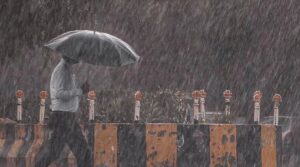Husband Appeals for Legal Action Against In-Laws Over Alleged ‘Unrequested Dowry’

Husband Appeals for Legal Action Against In-Laws Over Alleged 'Unrequested Dowry'
In a unique legal case, a man who appealed for criminal charges against his in-laws for allegedly giving him dowry—despite his claim of not asking for it—has faced rejection from the court. Additional Sessions Judge Navjeet Budhiraja reviewed the man’s appeal against a July 2022 ruling that dismissed his plea for a First Information Report (FIR) against his wife’s family, including her parents and brother. The man’s in-laws have also filed allegations of cruelty against him, further complicating the case.
Judge Budhiraja, in a ruling issued on October 5, pointed out that determining whether dowry was demanded would require evidence from both parties during a trial. “Until evidence is presented by both parties during the trial, the question of whether dowry was demanded cannot be effectively determined,” stated the court, adding that the man’s assertion of never asking for dowry, despite receiving ₹25,000 and ₹46,500 in his account, is “merely a self-serving assertion.”
The court noted that an FIR under Section 498A of the Indian Penal Code—relating to cruelty by a husband or his relatives—had already been filed by the in-laws against the man. During the filing of the FIR, the in-laws reportedly admitted to providing dowry, an act punishable under Section 3 of the Dowry Prohibition Act, which forbids both giving and receiving dowry.
Further, the court emphasized that the man failed to disclose the “serious allegations of persistent dowry demand” made against him by his wife and her family in the FIR. Magistrate remarks on his claims highlighted that his assertions in the complaint appeared unsubstantiated and aimed at misleading the court. “His repeated claims in the current complaint that he never demanded dowry and that dowry was given despite no such demands are unsubstantiated,” noted the magistrate.
Ultimately, Judge Budhiraja upheld the lower court’s order, concluding that the issues raised had been “suitably addressed” and found no grounds for intervention.












